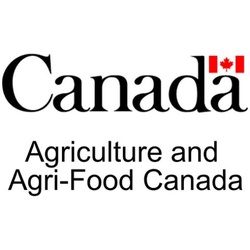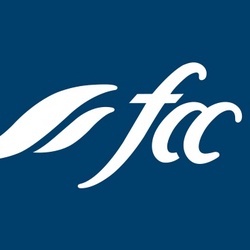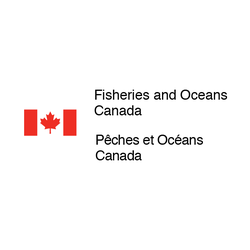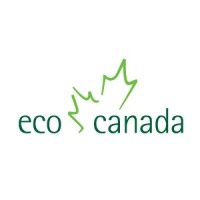
AgriAssurance Program — Small and Medium-Sized Enterprises
At a glance
- Maximum amount : 50,000 $
- Up to 50% of project cost
- Open Date : March 6, 2023
- Closing date : September 30, 2027
- Agriculture, forestry, fishing and hunting
- Canada
- For-profit business
- $ 100,000,000 maximum revenue
- 500 employees maximum
- Indigenous Peoples
Overview
Get up to $50,000 to implement third-party assurance certification projects that will help your company address international market requirements.
Activities funded
This grant supports small and medium-sized enterprises in the Canadian agricultural and agri-food sector to adopt assurance systems needed for market access. Eligible projects are focused on obtaining necessary certifications to meet specific export or domestic market requirements.
- Contracting professional services for obtaining certifications required for market access.
- Funding salaries for staff involved in developing documentation or training related to certification processes.
- Covering travel costs associated with obtaining necessary certifications.
- Paying for lab testing expenses required to gain certification or market recognition.
Eligibility
Eligibility for this program requires applicants to meet specific criteria related to their organizational profile and project focus.
- You must be a for-profit organization.
- Eligible for-profit organizations include partnerships, corporations, co-operatives (for-profit), and communes (for-profit).
- Indigenous organizations or individuals that are First Nation, Métis, or Inuit are also eligible.
- Your operations must be within the agriculture, agri-food, and agri-products industry, including the fish and seafood industry.
- Your business must be directly involved in growing, harvesting, processing, or transforming products.
- Your project must be aimed at meeting market-specific certification requirements and must be for initial certifications only.
- You must have up to 500 full-time equivalent employees.
- Your annual revenues must not exceed $100 million.
- You must be a legal entity capable of entering into legally binding agreements.
Who is eligible?
The AgriAssurance Program for Small and Medium-sized Enterprises (SMEs) targets for-profit organizations operating in the agriculture, agri-food, and agri-products industry, including the fish and seafood industry, that are directly involved in growing, harvesting, processing, or transforming their products. Eligible applicants must have up to 500 full-time equivalent employees, and their annual revenues should not exceed $100 million. Additionally, they must be legal entities capable of entering into legally binding agreements and aiming to meet market-specific certification requirements for the first time. Indigenous (First Nation, Métis, Inuit) individuals or organizations that are for-profit, as well as partnerships, corporations, co-operatives, or communes, are included as potential eligible applicants.
Who is not eligible
The eligibility criteria and restrictions in the given context do not explicitly exclude any particular types of companies or industries. The focus is on those that meet specific eligibility criteria such as being a for-profit organization and operating within eligible sectors.
Eligible expenses
The grant allows for a range of eligible expenses directly related to the project activities and goals.
- Salaries and benefits for staff executing project work plan activities, including MERCs, EI, CPP/QPP, vacation pay, and benefits.
- Professional or specialized contracted services such as inspection, consultancy, financial auditing, environmental assessments, and interpretation or translation services.
- Travel expenses integral to the project, including per diems for accommodations, meals, incidentals, and transportation (e.g., air, rail, and vehicle transportation).
- Costs for eligible carbon offset credits from verified vendors adhering to internationally agreed standards.
- Other direct project costs like shipping, conference and registration fees, marketing costs related to producing materials/documents, and translation services.
Selection criteria
The evaluation and selection of projects for this grant are based on specific criteria to ensure that the projects meet the overall objectives and deliver targeted outcomes effectively.
- The application is complete and the proposed project is eligible.
- The proposed activities and outcomes support the program objectives.
- All funding sources for the proposed project are identified.
- The capacity of the applicant to deliver the project, considering resources and timelines.
- The eligibility, reasonableness, and necessity of the proposed activities and costs.
How to apply
Access Program Information
Secure Sign-in
Start Application Process
Download Required Forms
Complete Forms
Upload Documents
- Prepare and upload the organization’s Certificates or Articles of Incorporation or alternatives.
- Attach the last two years’ financial statements.
Complete Application Details
Submit Application
Additional information
Here are additional relevant details for this grant:
- The program ends on March 31, 2028, meaning all project activities should be completed by then.
- Funding is available on a cost-sharing basis, with AAFC covering up to 50% of eligible project costs.
- All project costs are only eligible if incurred after April 1, 2023, and not before the application is deemed complete by AAFC.
- While in-kind contributions are not eligible towards your cost-share, they can still contribute towards project success.
- M-30 legislation may apply to applicants based in Quebec, requiring compliance during the application process.
- Intellectual property resulting from funded projects generally remains with the applicant, though certain rights may be granted to AAFC.
- Travel costs are structured with specific eligible rates and methods for reimbursement, subject to outlined limitations.
Contacts
Frequently Asked Questions about the AgriAssurance Program — Small and Medium-Sized Enterprises Program
What is the AgriAssurance Program — Small and Medium-Sized Enterprises?
How much funding can be received?
What is the deadline to apply?
Who is eligible for the AgriAssurance Program — Small and Medium-Sized Enterprises program?
What expenses are eligible under AgriAssurance Program — Small and Medium-Sized Enterprises?
Who can I contact for more information about the AgriAssurance Program — Small and Medium-Sized Enterprises?
Where is the AgriAssurance Program — Small and Medium-Sized Enterprises available?
More programs like this

Farm Equipment Financing
Farm Credit Canada (FCC)
AgriAssurance Program – National Industry Association Component
Agriculture and Agri-Food Canada (AAFC)
AgriInnovate Program
Agriculture and Agri-Food Canada (AAFC)
Canada Nature Fund for Aquatic Species at Risk (CNFASAR)
Fisheries and Oceans Canada (DFO)
ECO Canada — Youth Employment in Natural Resources YNR
ECO Canada
Small Craft Harbours Abandoned and Wrecked Vessels Removal Program
Fisheries and Oceans Canada (DFO)
Northern Integrated Commercial Fisheries Initiative (NICFI) - Expansion and Diversification
Fisheries and Oceans Canada (DFO)
Aboriginal Funds For Species At Risk (AFSAR)
Fisheries and Oceans Canada (DFO)
Northern Integrated Commercial Fisheries Initiative (NICFI) - Harvester Training
Fisheries and Oceans Canada (DFO)